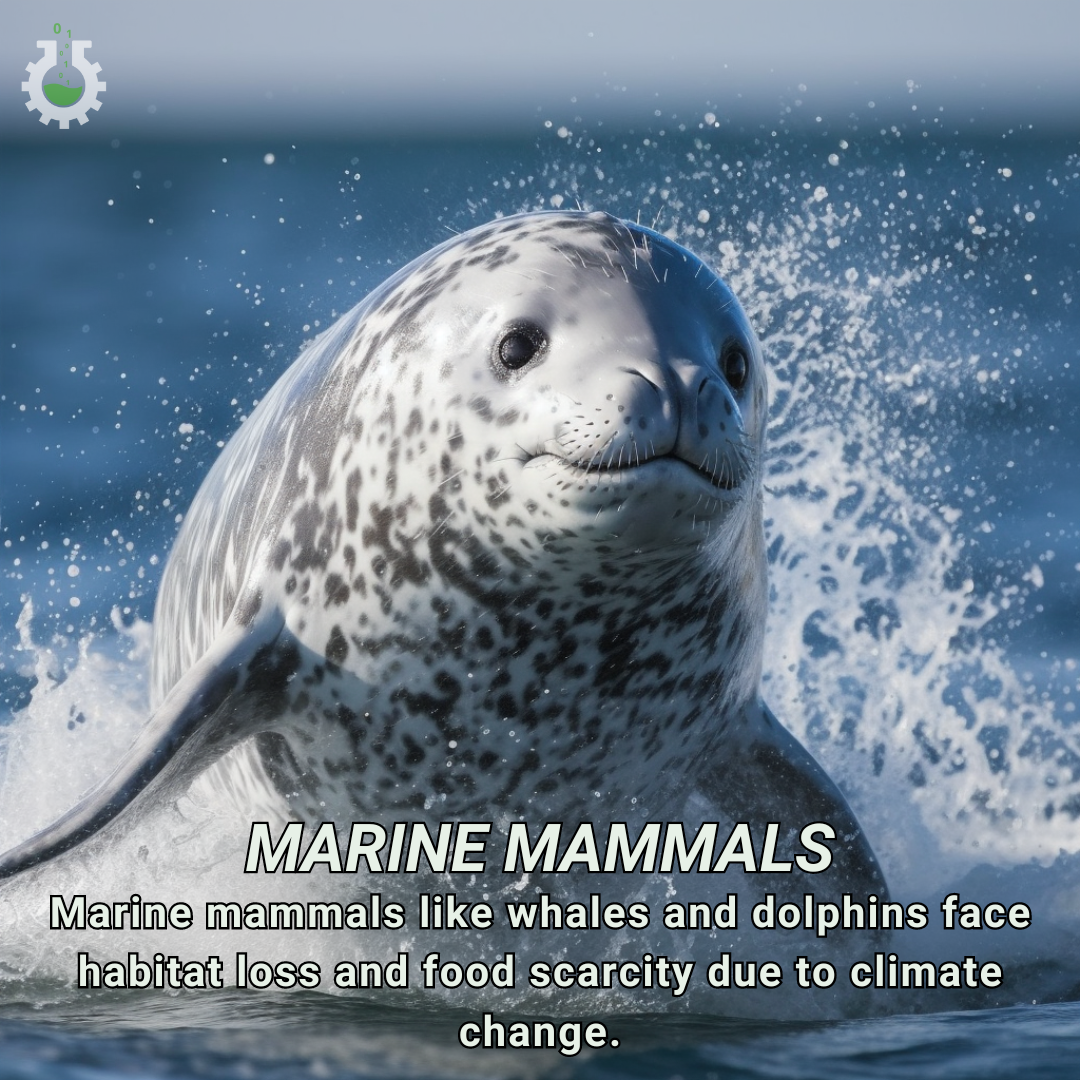June 28, 2024
Climate Change Poster Collection of the Day – Marine Mammals
Book a Demo
Today’s Climate Change Poster Collection highlights Marine mammals, a diverse group of approximately 130 species including whales, dolphins, seals, sea lions, manatees, and polar bears, are uniquely adapted to life in the ocean. These creatures play crucial roles in marine ecosystems, from maintaining the balance of marine food webs to contributing to nutrient cycling. However, climate change is posing significant threats to their survival and well-being, leading to a cascade of impacts that extend throughout the oceanic environment.
Climate change is having profound and multifaceted impacts on marine mammals, including whales, dolphins, and other species that are integral to ocean ecosystems. These majestic creatures are facing unprecedented challenges due to the rapidly changing climate, which is altering their habitats, food sources, and migration patterns. The rising temperatures of ocean waters are causing shifts in the distribution of prey species, forcing marine mammals to travel longer distances and expend more energy to find food. This is particularly problematic for species like the North Atlantic right whale, which is already critically endangered. Additionally, the melting of polar ice caps is reducing the habitat available for species such as polar bears and walruses, which rely on sea ice for hunting and resting.
Ocean acidification, another consequence of increased atmospheric CO2, is affecting the availability of calcium carbonate, which is essential for the formation of shells and skeletons of many marine organisms that are part of the food web supporting marine mammals. As the pH of ocean water decreases, the survival rates of these organisms drop, leading to a decline in the prey available for marine mammals. This not only impacts their nutrition but also disrupts the intricate balance of marine ecosystems. Furthermore, increased frequency and intensity of storms and extreme weather events are disrupting the marine environment, causing stress and displacement for many species. These storms can destroy critical habitats, such as coral reefs and kelp forests, which serve as important feeding and breeding grounds for marine mammals.
Noise pollution from shipping, oil exploration, and other human activities is exacerbated by climate change, making it harder for marine mammals to communicate, navigate, and find mates. The cumulative stress from these environmental changes is leading to increased vulnerability to diseases and reduced reproductive success. For example, the rise in ocean temperatures has been linked to the spread of harmful algal blooms, which produce toxins that can be fatal to marine mammals. Additionally, warmer waters can foster the growth of pathogens that marine mammals are not adapted to handle, further compromising their health.
Conservation efforts must now account for these climate-induced changes, emphasizing the need for adaptive management strategies that can help marine mammals cope with the new challenges posed by a warming world. Protecting critical habitats, reducing greenhouse gas emissions, and minimizing human-induced stressors are essential steps to ensure the survival of these iconic species. This includes creating marine protected areas that are resilient to climate change, implementing sustainable fishing practices to ensure the availability of prey, and reducing carbon footprints globally.
The plight of marine mammals in the face of climate change underscores the interconnectedness of our planet’s ecosystems and the urgent need for comprehensive action to mitigate climate impacts and preserve biodiversity. As sentinel species, marine mammals provide early warnings of the health of marine environments. Their struggles reflect broader environmental changes that ultimately affect all life on Earth, including humans. By addressing the threats posed by climate change to marine mammals, we also take critical steps toward safeguarding the health and stability of our global environment.
Discover an inspiring collection of climate change poster.



